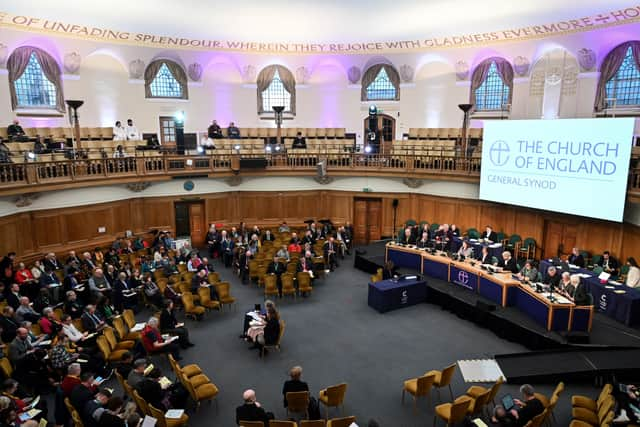Gender-neutral terms for God - Dean of Liverpool gives verdict amid Church of England debate
and live on Freeview channel 276
The Church of England has said it will consider whether to stop referring to God as “he” after priests asked to be allowed to use gender-neutral terms instead.
The Church is launching a new project in the spring to look into the matter, but any potential alterations, which would mark a departure from traditional teachings dating back millennia, would have to be approved by the synod, the Church’s decision-making body.
Advertisement
Hide AdAdvertisement
Hide AdThe project has sparked some controversy, so we spoke to Dean of Liverpool, the Very Rev Dr Sue Jones, about her opinion on using gender-neutral terms for God.
Rev Jones told LiverpoolWorld: “I try to always refer to God as God, and not actually use the “he” language myself. For me, God is neither male nor female, God is God. And, so it isn’t a problem for me.”
Rev Jones also expressed discomfort when using exclusive language in traditional hymns, for example, using the word “mankind.” She said: “I think God is all inclusive of everybody, male or female, and doesn’t have a gender.”
So far, it is unclear what language would be used in place of “he” or “him” but many religious texts do refer to God in a gendered manner.


Advertisement
Hide AdAdvertisement
Hide AdA spokesperson for the Church of England said: “This is nothing new. Christians have recognised since ancient times that God is neither male nor female, yet the variety of ways of addressing and describing God found in scripture has not always been reflected in our worship.
“There has been greater interest in exploring new languages since the introduction of our current forms of service in contemporary language more than 20 years ago.
“There are absolutely no plans to abolish or substantially revise currently authorised liturgies, and no such changes could be made without extensive legislation.”
Comment Guidelines
National World encourages reader discussion on our stories. User feedback, insights and back-and-forth exchanges add a rich layer of context to reporting. Please review our Community Guidelines before commenting.